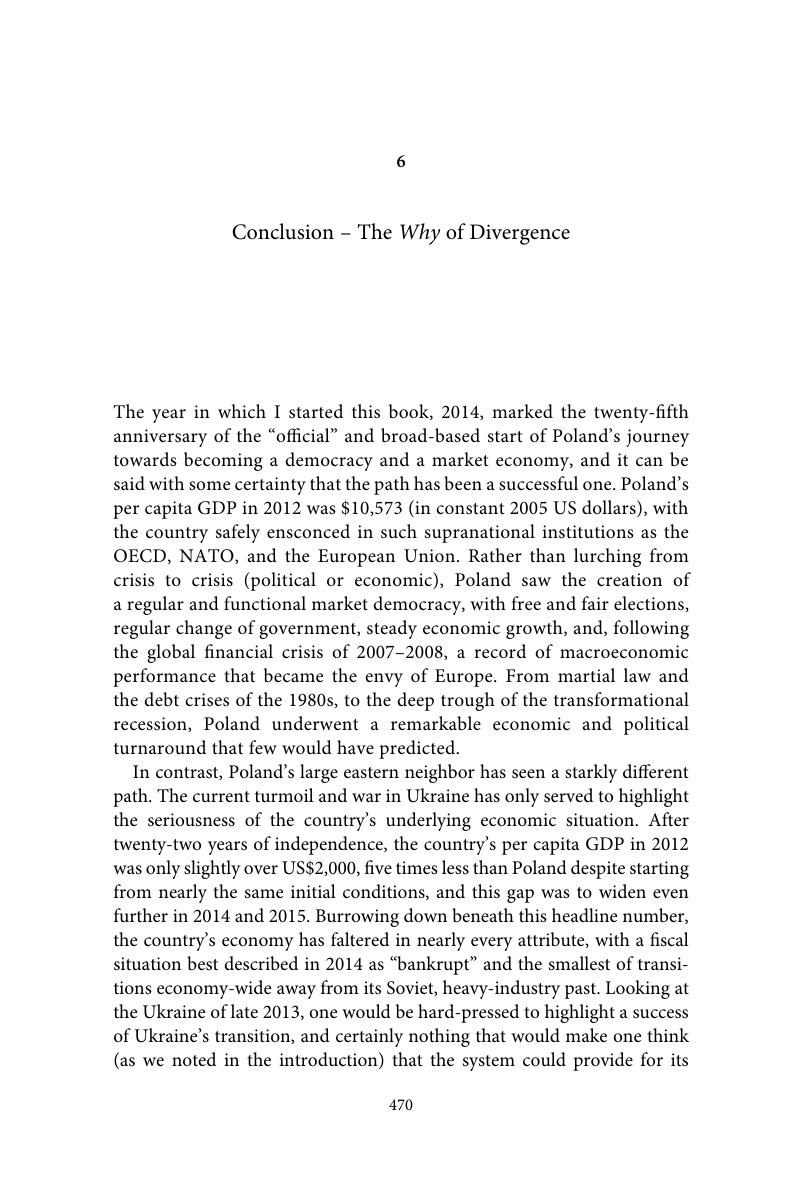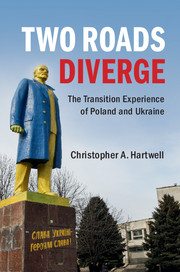Book contents
- Two Roads Diverge
- Two Roads Diverge
- Copyright page
- Dedication
- Contents
- Figures
- Tables
- Book part
- Foreword
- Dedication
- 1 Introduction
- 2 A Brief Institutional History of Central Europe (Part One): Poland and Its Political Institutions to 1989
- 3 A Brief Institutional History of Central Europe (Part Two): Poland and Its Economic Institutions to 1989
- 4 A Brief Institutional History of Eastern Europe: Ukraine and Its Institutions to 1989
- 5 The Transition of Poland and Ukraine: Two Roads Diverge
- 6 Conclusion – The Why of Divergence
- Index
- References
6 - Conclusion – The Why of Divergence
Published online by Cambridge University Press: 13 October 2016
- Two Roads Diverge
- Two Roads Diverge
- Copyright page
- Dedication
- Contents
- Figures
- Tables
- Book part
- Foreword
- Dedication
- 1 Introduction
- 2 A Brief Institutional History of Central Europe (Part One): Poland and Its Political Institutions to 1989
- 3 A Brief Institutional History of Central Europe (Part Two): Poland and Its Economic Institutions to 1989
- 4 A Brief Institutional History of Eastern Europe: Ukraine and Its Institutions to 1989
- 5 The Transition of Poland and Ukraine: Two Roads Diverge
- 6 Conclusion – The Why of Divergence
- Index
- References
Summary

- Type
- Chapter
- Information
- Two Roads DivergeThe Transition Experience of Poland and Ukraine, pp. 470 - 494Publisher: Cambridge University PressPrint publication year: 2016



